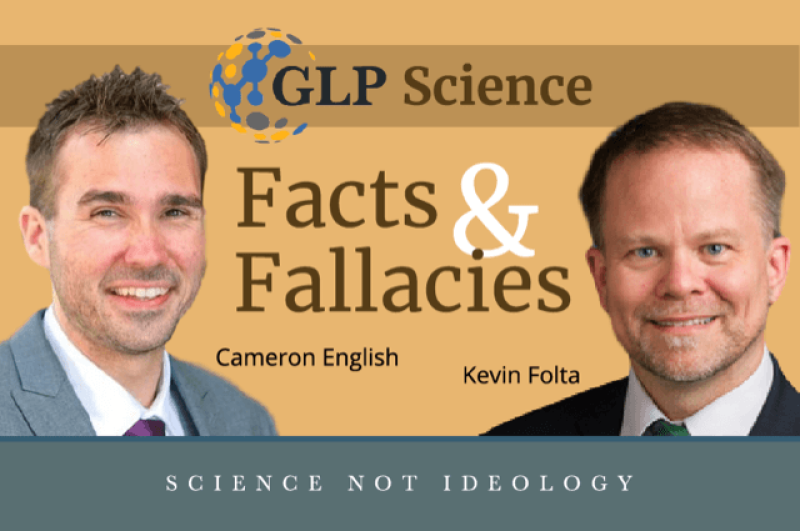Podcast:
Podcast: Play in new window | Download
Subscribe: RSS
Video:
Join host Dr. Liza Dunn and GLP contributor Cameron English on episode 226 of Science Facts and Fallacies as they break down these latest news stories:
Whether it’s sugar, fat or protein; meat, candy or soda, many nutrition studies focus on the potential health risks or benefits of eating a single nutrient or food. The results of this research are straight forward, widely covered in the press—and often wrong. Human nutrition is much more complicated than individual nutrients, as it turns out. What can we do as discerning consumers of media (and food) to properly assess the studies that we seen in the headlines?
Steve Kirsch made a fortune as an entrepreneur in Silicon Valley. At the beginning of the pandemic, he was poised to make an important public health contribution by establishing the Covid-19 Early Treatment Fund (CETF). The non-profit went to work investigating FDA-approved drugs as potential off-label treatments for COVID-19. Then Kirsch went off the rails.
Although he recruited respected scientists to conduct the foundation’s research, he began disputing their results if they weren’t to his liking. For example, the anti-depressant fluvoxamine seemed affective against the virus in preliminary studies, but subsequent research has yet to produce conclusive results. Kirsch nevertheless insisted that the drug’s usefulness as a COVID treatment was being suppressed. That conclusion eventually led him to the belief that a campaign was underway to minimize the efficacy of existing drugs so pharma companies could sell their vaccines.
Research shows that confident people inspire trust in those around them. Part of this appeal stems from the perception that confidence is indicative of intelligence. Such a trait was quite useful throughout human history as people rallied around self-assured leaders who could guide them through dangerous circumstances. Of course, confidence has a downside: ignorant people can be confident, too. There’s an important lesson here for scientists who want to communicate with the public.
Dr. Liza Dunn is a medical toxicologist and the medical affairs lead at Bayer Crop Science. Follow her on Twitter @DrLizaMD
Cameron J. English is the director of bio-sciences at the American Council on Science and Health. Visit his website and follow him on Twitter @camjenglish































